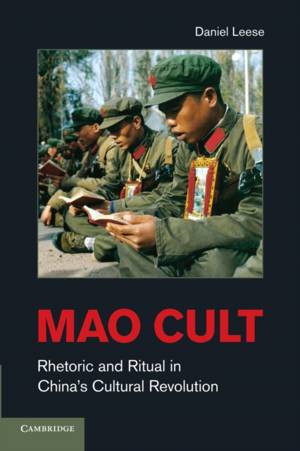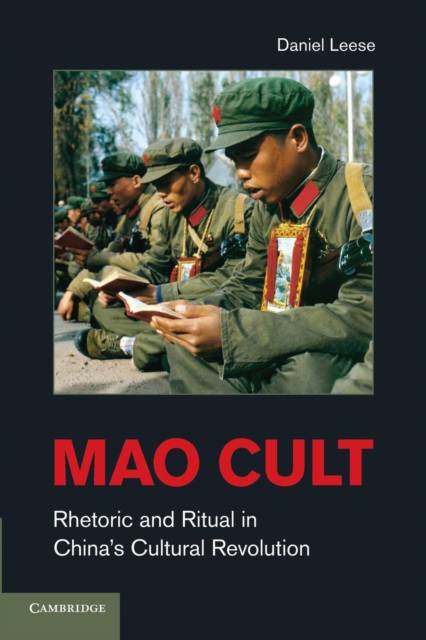
- Afhalen na 1 uur in een winkel met voorraad
- Gratis thuislevering in België vanaf € 30
- Ruim aanbod met 7 miljoen producten
- Afhalen na 1 uur in een winkel met voorraad
- Gratis thuislevering in België vanaf € 30
- Ruim aanbod met 7 miljoen producten
Zoeken
€ 50,45
+ 100 punten
Uitvoering
Omschrijving
Mao Zedong's political and cultural legacy remains potent even in today's China. There have been many books that have explored his posthumous legacy, but none that has scrutinized the cult of Mao and the massive worship that was fostered around him at the height of his powers during the Cultural Revolution. This riveting book is the first to do so. By analyzing previously secret archival documents, obscure objects, and political pamphlets, Daniel Leese traces the tumultuous history of the cult within the Communist Party and at the grassroots level. The Party leadership's original intention was to develop a prominent brand symbol, which would compete with the nationalists' elevation of Chiang Kai-shek. They did not, however, anticipate that Mao would use this symbolic power to mobilize Chinese youth to rebel against party bureaucracy itself. The result was anarchy, and when the army was called in, it relied on mandatory rituals of worship, such as daily reading of the Little Red Book or performances of 'the loyalty dance', to restore order. Such fascinating detail sheds light not only on the personality cult of Mao, but also on hero-worship in other traditions.
Specificaties
Betrokkenen
- Auteur(s):
- Uitgeverij:
Inhoud
- Aantal bladzijden:
- 324
- Taal:
- Engels
Eigenschappen
- Productcode (EAN):
- 9780521152228
- Verschijningsdatum:
- 22/08/2013
- Uitvoering:
- Paperback
- Formaat:
- Trade paperback (VS)
- Afmetingen:
- 152 mm x 229 mm
- Gewicht:
- 435 g

Alleen bij Standaard Boekhandel
+ 100 punten op je klantenkaart van Standaard Boekhandel
Beoordelingen
We publiceren alleen reviews die voldoen aan de voorwaarden voor reviews. Bekijk onze voorwaarden voor reviews.







